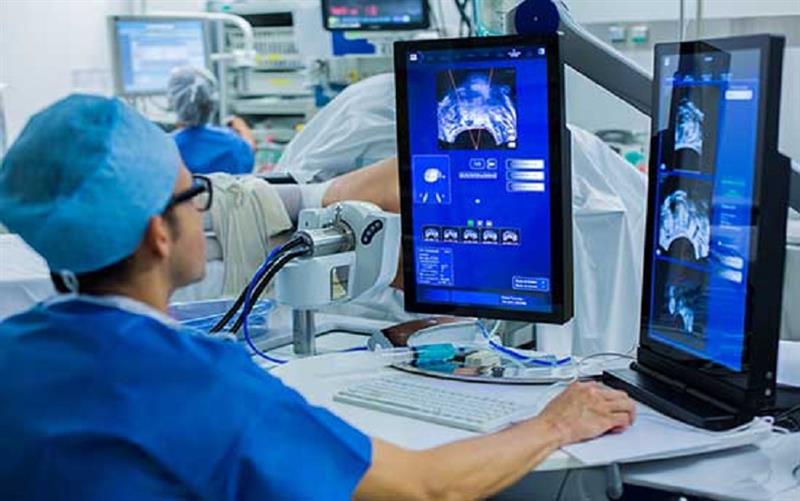
Healthcare software has become more than just an addition; it is now essential in the contemporary medical sector. It is a vital resource for every healthcare business because of its ability to enhance patient care, streamline operations, manage data, facilitate communication, guarantee compliance, and provide cost savings. The use of cutting-edge software solutions will only become more important in providing excellent, effective, and patient-centered care as technology develops.
Healthcare software is an essential part of the contemporary medical sector, not just a useful tool. Its advantages cut across many aspects of healthcare, from guaranteeing data security and facilitating creative care models to augmenting patient care and increasing efficiency. Adoption and software optimization for healthcare will continue to be essential to providing effective, patient-centered treatment even as the healthcare landscape changes. The secret to successfully navigate the future of healthcare is to embrace these technological breakthroughs.
Today's ever changing medical environment makes technology integration a need rather than a luxury. The modern medical business has come to rely heavily on healthcare software, which has revolutionized the way healthcare providers connect with patients, manage operations, and deliver care. Here’s a deep dive into why healthcare software is indispensable in today's medical environment.
1. Patient Engagement and Satisfaction
Improving patient happiness and health outcomes requires active patient engagement. Patients can use platforms provided by healthcare software to contact with their healthcare providers, make appointments, and access their medical records. Patients who are actively involved in their healthcare are more likely to adhere to their treatment regimens and express satisfaction with the care they receive, thanks to patient portals and mobile apps.
2. Integration and Interoperability
The complicated surroundings of modern healthcare involve numerous systems and players. Healthcare software makes it easier for various systems to integrate and communicate with one another, facilitating easy data sharing and teamwork. By ensuring that all pertinent parties, including specialists, labs, and primary care physicians, have access to the same information, this integrated approach promotes coordinated care and lowers the possibility of unnecessary tests or treatments.
3. Enhanced Data Security and Compliance
Healthcare software is essential for protecting patient data in light of growing concerns about privacy and data breaches. Robust security mechanisms are incorporated into advanced software systems to shield confidential information from unwanted access. Additionally, by guaranteeing that data handling procedures adhere to stringent privacy and security standards, healthcare software assists facilities in meeting legal requirements such as the Health Insurance Portability and Accountability Act (HIPAA).
4. Facilitating Telemedicine and Remote Care
The emergence of telemedicine represents a noteworthy progression in the field of healthcare technology. Patients who might find it difficult to attend medical facilities in person can now receive healthcare more easily thanks to healthcare software, which makes virtual consultations, remote monitoring, and online follow-ups possible. This technology guarantees that patients receive timely and appropriate interventions wherever they may be, increasing access to care while simultaneously supporting continuity of care.
5. Optimized Resource Management
To guarantee that resources are used effectively and economically, efficient resource management is essential in healthcare settings. Medical supplies, equipment, and staff are just a few of the resources that healthcare software helps to track and manage. Reordering procedures may be automated, stock levels can be tracked, and needs can be forecasted using systems such as Inventory Management Software (IMS), which also ensures that resources are available when needed and cuts down on waste.
6. Improved Efficiency and Productivity
In hospital settings, the administrative workload might be excessive. These are necessary but time-consuming duties, ranging from making appointment arrangements to handling invoicing and coding. Many of these procedures are automated by healthcare software, freeing up medical personnel to concentrate more on patient care and less on administrative tasks. Healthcare facilities experience higher production and efficiency when scheduling, invoicing, and patient communication are streamlined by systems like Practice Management Software (PMS).
7. Enhanced Patient Care
Through the provision of tools that improve accuracy and streamline workflows, healthcare software dramatically enhances patient care. Patient data may be gathered, stored, and retrieved with ease thanks to electronic health records, or EHRs. In addition to guaranteeing that medical professionals have access to thorough patient records, this lowers the possibility of mistakes resulting from manual record-keeping. Better decision-making and individualized treatment are the results, which may improve health outcomes.
8. Data-Driven Decision Making
Strong analytical tools found in healthcare software are capable of analyzing enormous volumes of data and producing insights that are useful. Healthcare professionals may track results, spot trends, and make evidence-based decisions by utilizing data analytics. This data-driven method facilitates strategic planning for better resource allocation and patient care, strengthens clinical decision-making, and increases operational efficiency.